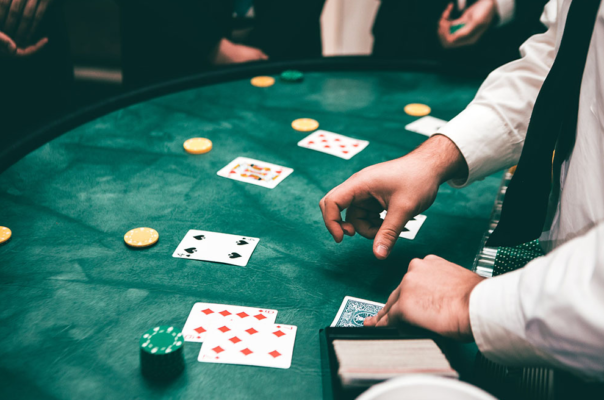Poker is a game of strategy, psychology, and skill, making it one of the most thrilling and challenging card games in the world. Whether you’re a seasoned pro or a beginner, understanding key strategies can significantly improve your gameplay and increase your chances of success. In this article, we’ll explore essential poker tips, tricks, and hacks to help you elevate your game.

1. Understand the Basics
Before diving into complex strategies, it’s crucial to have a solid grasp of the basic rules of poker. Familiarize yourself with the different hand rankings, the order of play, and the various types of poker games, such as Texas Hold’em, Omaha, and Seven-Card Stud. Understanding these fundamentals will serve as the foundation for more advanced strategies.
2. Play Tight and Aggressive
One of the most effective poker strategies is to play tight and aggressive. This means you should only play strong hands and bet or raise aggressively when you do. By doing so, you’ll put pressure on your opponents and force them to make difficult decisions. Avoid playing too many hands, as this can lead to costly mistakes.
3. Pay Attention to Position
Your position at the poker table is one of the most critical factors in determining your strategy. Being in a late position allows you to observe your opponents’ actions before making your move, giving you a strategic advantage. Use this information to make more informed decisions, such as whether to call, raise, or fold.
4. Read Your Opponents
Poker is as much about reading your opponents as it is about playing your cards. Pay close attention to their betting patterns, body language, and any tells they might display. For instance, a player who suddenly bets aggressively after playing passively might be bluffing. Understanding these cues can help you make better decisions during the game.
5. Bluff Wisely
Bluffing is an essential part of poker, but it should be done sparingly and strategically. The key to a successful bluff is to convince your opponents that you have a stronger hand than you actually do. However, if you bluff too often, your opponents may catch on and start calling your bets. Use bluffing as a tool to manipulate the pot and keep your opponents guessing.
6. Manage Your Bankroll
Effective bankroll management is crucial for long-term success in poker. Set a budget for how much you’re willing to lose and stick to it. Avoid chasing losses by betting more than you can afford, as this can quickly lead to financial trouble. Instead, play within your means and focus on making calculated decisions to maximize your profits.
7. Study the Game
The best poker players are always learning and improving their skills. Take the time to study the game by reading books, watching videos, and analyzing your play. Many professional players review their hands after a session to identify mistakes and areas for improvement. By continuously refining your strategy, you’ll stay ahead of the competition.
8. Stay Emotionally Balanced
Poker can be an emotional game, especially when you’re on a losing streak. However, it’s essential to stay calm and composed, regardless of the outcome. Letting your emotions dictate your decisions can lead to poor choices and costly mistakes. If you find yourself getting frustrated, take a break and return to the game with a clear mind.
9. Use Technology to Your Advantage
In today’s digital age, numerous tools and software are available to help you improve your poker skills. For example, hand analysis software can provide insights into your play, while online forums and communities offer valuable advice and discussions. Utilize these resources to enhance your understanding of the game and stay ahead of your opponents.
10. Practice, Practice, Practice
Like any skill, mastering poker takes time and practice. The more you play, the better you’ll become at understanding the nuances of the game. Start by playing low-stakes games to hone your skills without risking too much money. As you gain confidence, gradually increase the stakes and challenge yourself against stronger opponents.

Conclusion
Poker is a game of skill, strategy, and mental fortitude. By applying these tips, tricks, and hacks, you’ll be well on your way to becoming a more successful and confident poker player. Remember, the key to success in poker lies in continuous learning, discipline, and smart decision-making. So, the next time you sit down at the poker table, keep these strategies in mind and watch your game improve.







Leave a Reply